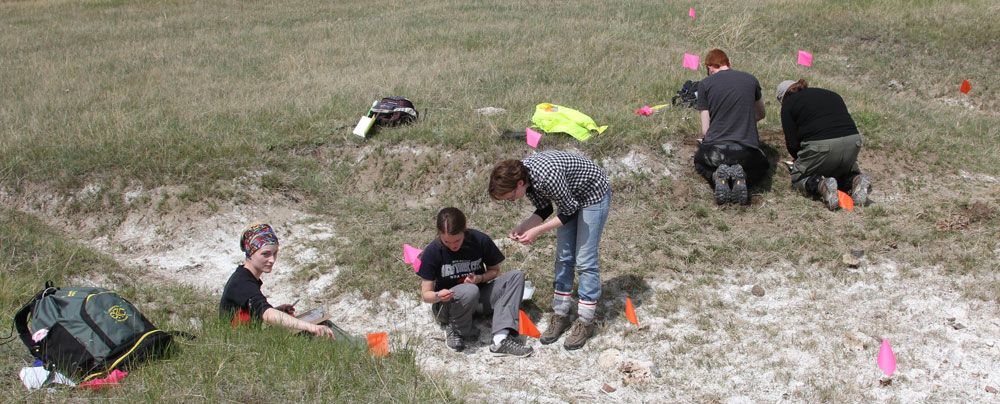Under new leadership with Director Kisha Supernant, the renamed Institute of Prairie and Indigenous Archaeology recently wrapped up its summer 2019 Archaeological Field School - a for-credit opportunity that allows students of all academic backgrounds to gain hands-on experience in archaeological field work, co-taught this year by Supernant and outgoing director Jack Ives.
Supernant, a Métis scholar whose research focuses on Indigenous archaeology, says the Institute will continue to build on existing connections while the same time, form deeper community partnerships. This imperative guided a portion of the field school's activities, as students searched for an unmarked Papaschase First Nation burial site.
Many students named this community work as the most impactful part of the field school. Archaeology, the students learned, could be an act of public service. "We got to meet the people that it was directly affecting," said anthropology major Jessica Stocks of working with Papaschase, "Getting to talk with members of the community was refreshing."
While working with Papaschase, the students learned about their community and history. They participated in community traditions, including smudging ceremonies with Elders. "It was really a privilege and an honour to work with them, especially on something as sensitive as a potential unmarked burial site," said Miranda Rubin.
Communal living was a core aspect of the students' experience, especially during the portion of the field school that took place adjacent to the Mattheis Ranch - a research facility owned by the University of Alberta and managed through the Rangeland Research Institute. Students lived together alongside staff at the ranch while excavating at a nearby bison kill site. Supernant and Ives worked with the students to create Principles of Community - agreed-upon standards which included flexibility, communication, mindfulness and respect. Madalyn Manziak, history major and anthropology minor, had just completed her first year when she began the field school. Participating in this experience, she said, helped her find a community after an isolating first year.
The Principles of Community allowed students to form important friendships over the course of the field school, which many believe will last throughout their degrees and even their lifetimes. "I've become close with a lot of my peers," Rubin noted. "It really opens your horizons within your faculty."

The Institute for Prairie and Indigenous Archaeology's Field School Teaches Invaluable Lessons about Community
For students, the field school is an invaluable practical learning experience. "You learn mapping, recording and everything. It's very in-depth and really prepares you for any future archaeological work," said Rubin. Tyler Lewis added that learning from professor and former field school director Jack Ives was invaluable. "It definitely enhanced the experience a lot."
The field school, Frances Baartman said, gives students practical experience that will help them when applying for jobs in archaeology. She agreed that the professors and teaching assistants made the program stand out. "They really influenced how I see archaeology as a discipline."
"Keep an open mind and work hard," said Manziak of how to prepare for participation in the school. Despite their emphasis on the long days, struggles with hot weather, rain and hard work, the students all highlighted how rewarding the experience was. "I know people always say, 'oh, it's fun,' but it actually was fun!" says Manziak. Baartman joked that unpredictable conditions are all "part of the adventure."
"If you're thinking about doing it, do it!" he says.
The Institute of Prairie and Indigenous Archaeology will continue to develop its goals and research imperatives under its new leadership throughout the upcoming academic year, holding a Visioning Retreat this fall to reimagine its role in the campus community and the community at large.
Katherine DeCoste is a student writer for the Arts Collaboration Enterprise
Read more about the Institute of Prairie and Indigenous Institute here.
Read more about the Archaeology Field School here.